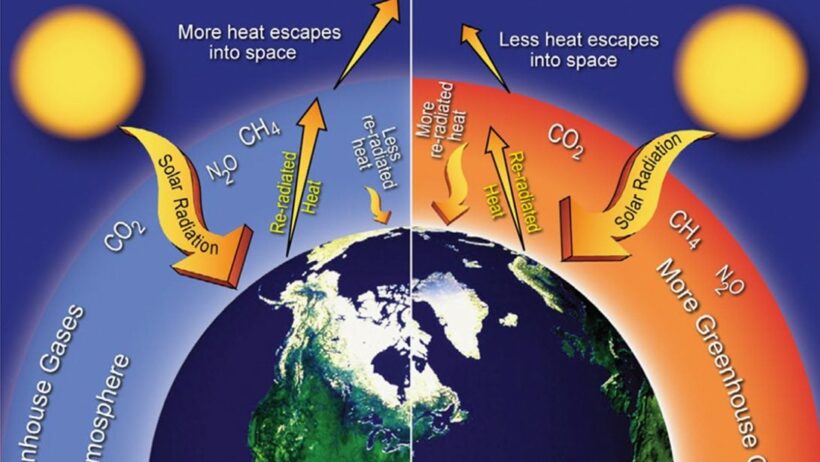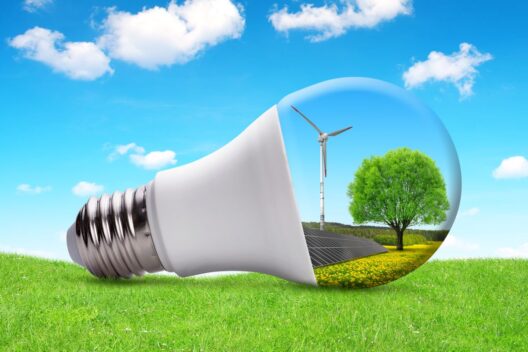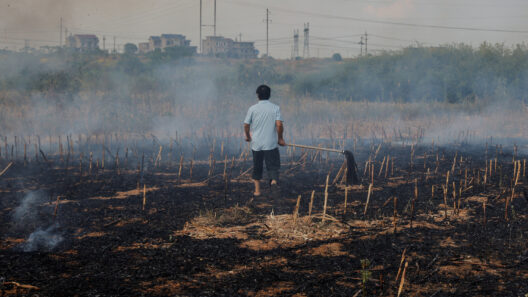Climate change represents one of the most formidable challenges faced by humanity today. It’s not merely an ecological issue; it is intimately connected to economic, social, and political factors that converge to alter the planet’s climate system. Understanding why climate change is happening requires exploring a confluence of scientific, industrial, and societal influences that have compounded over decades. Let’s delve into the complexities of this phenomenon.
Understanding the mechanisms at play reveals a darker reality: the interplay between natural phenomena, human activity, and economic growth has set the stage for an unprecedented environmental transformation.
By invoking curiosity and a shift in perspective, we can foster a more profound awareness of our responsibilities and the actions necessary to mitigate this crisis.
The Role of Greenhouse Gases
At the forefront of climate change are greenhouse gases (GHGs), which include carbon dioxide (CO2), methane (CH4), nitrous oxide (N2O), and fluorinated gases. These gases, while naturally occurring and essential for sustaining life on Earth, have been emitted in excessive quantities due to human activities, resulting in the greenhouse effect.
As we burn fossil fuels—coal, oil, and natural gas—for energy, we release significant amounts of CO2. Deforestation further exacerbates this issue by reducing the number of trees available to absorb CO2. Meanwhile, agricultural practices produce methane and nitrous oxide in quantities that have ripple effects across ecosystems. Livestock digestion and manure management are notable culprits for methane emissions. Consequently, the atmospheric concentration of these gases is rising, trapping heat and leading to global temperature increases.
The consequence of these emissions is profound: the Earth’s average temperature is rising, leading to melting ice caps, rising sea levels, and more extreme weather events than ever before.
Industrialization: The Catalyst for Change
Industrialization triggered a seismic shift in human activity and environmental impact. The onset of the Industrial Revolution in the 18th century marked the beginning of massive resource extraction and energy consumption. This boom in industry significantly modified land use, disrupted natural habitats, and propounded pollution in all its forms.
Manufacturing processes released not only carbon emissions but also various contaminants that affect air, soil, and water quality. With urban areas expanding and economic opportunities burgeoning, reliance on fossil fuels became economically advantageous, driving demand to unprecedented levels.
This relentless pursuit of growth, often termed the quintessence of modern capitalism, poses ethical questions about sustainability and the sacrifice of environmental integrity for economic gain. The challenge lies in rethinking this paradigm. Can societies transition to more sustainable practices without sacrificing growth? This question reflects the urgent need for transformative innovation.
Natural Variability: A Silent Accomplice
While human activities are the principal drivers of current climate change, we must acknowledge the natural variability of the Earth’s climate system. Throughout history, the planet has experienced cycles of warming and cooling driven by natural factors such as volcanic eruptions, solar radiation variations, and oceanic currents.
The complexity of these interactions makes it difficult to untangle anthropogenic contributions from natural variability entirely. However, the overwhelming consensus among the scientific community is that current climate shifts catalyzed by human actions far exceed the capacity of natural processes to explain.
Understanding this interplay aids in making informed projections about future climate scenarios. By coupling technological advancements in climate science with observational data, a clearer picture emerges, allowing policymakers to craft evidence-based, proactive measures to combat these changes.
Economic Inequities and Climate Justice
The reality of climate change highlights global inequalities that disproportionately affect the most vulnerable populations. Low-income communities, particularly in developing nations, often bear the brunt of climate-related impacts despite contributing the least to greenhouse gas emissions. Natural disasters, flooding, and droughts disrupt livelihoods, exacerbate poverty, and force displacement. This raises pressing ethical considerations surrounding climate justice.
A climate crisis isn’t exclusively environmental; it is also a moral crisis. The socio-economic implications demand a collective re-evaluation of how resources are allocated, who bears the brunt of transformation, and how to empower marginalized voices. Discussions about climate change should not solely revolve around technological and scientific advancements, but also include policy changes that promote equitable solutions.
The Promise of a Paradigmatic Shift
Faced with the realities of climate change, there is an urgent need for innovative approaches that foster ecological sustainability while addressing social equity. Transitioning to renewable energy sources, rethinking urban planning, and investing in green technologies are crucial steps forward. At the same time, integrating education regarding climate literacy will cultivate informed stakeholders capable of advocating for environmental stewardship.
Encouraging a systemic change requires collective dedication—from individuals altering consumption habits to governments enacting comprehensive environmental regulations. As we navigate this complex terrain, the potential to counteract climate change lies not only in scientific innovation but also in the collective will of society to embrace a more sustainable future.
Ultimately, understanding why climate change is happening demands a multifaceted examination. By recognizing the intricate mesh of human actions, industrial practices, natural phenomena, and socio-economic disparities, we can arm ourselves with knowledge to drive transformative action. As we explore these dynamics, we must ask ourselves: what legacy do we want to leave for future generations? The answer may very well determine the fate of our planet.







